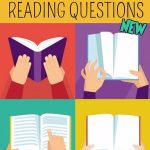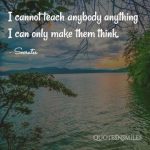Money & Numbers
Numeracy is a vital skill in today’s world. Where we might think of maths as consisting only of sums, fractions and decimals, it is broader than that. Our numeracy teaching has a firm link to everyday life, and includes concepts of shape and space, patterns, measurement, handling data and using numbers for day to day living like shopping, budgeting, cookery and sport. We run regular in service training in this area, so if you would like to train as a numeracy tutor, contact your local literacy organiser. Contact details are found here.
Communicating everyday mathematical concepts to students – From NALA and TCD numeracy conference – 18 June 2015 in TCD
Tutor tips – watch some on video here
Make everyday links – use Plain Maths! (Mary Bambrick)
Break down your own understanding of the numeracy you are teaching
Use your broader set of skills to impart what you know
Use everyday objects – use the contents of your pocket to teach algebra – you can only add like terms (e.g. two pens) not unlike terms (a key & a phone) – see NALA case studies below
Go to NALA case studies for ideas and support (Tina Byrne)
Check out the NALA numeracy case studies BEFORE you google – you might just find what you are looking for.
Use the case studies to find out about shared ideas and initiatives.
Free to download/ order from NALA What Really Counts and What Really Counts Next
Open your maths eyes! Encourage learners to open theirs. (Aoife Smith)
Open your maths eyes – haveyougotmathseyes.com – bring outside maths into your sessions
Have learners open their maths eyes. They will start to look at familiar things in their lives and think about the maths in them.
Devise a learner questionnaire to find out their areas of interest and base the numeracy on those areas
Raise critical awareness of numeracy information eg. price comparison when shopping, fares on the bus
Use everyday objects for a wide variety of numeracy skills – receipts or recipes for rounding, estimating, calculator practice.
Set tasks to be done outside of the class – Rounding up items when shopping to estimate the total cost, Practise calculator skills on the receipt
Reluctant learners – everyone has a maths story (Catherine Byrne)
No-one has no maths – work from the tip of the iceberg and uncover the learners’ knowledge together
Listen to and acknowledge the learner’s maths story (maybe tell yours too)
Log and park the learner’s maths story and start a new chapter together
Demonstrate care for your learner and passion for your subject
Numeracy as social practice (Nuala Broderick)
Find out what the learner does in maths in everyday life e.g. online gambling and hook that to new learning
Use a clock face chart and/or images to prompt learners to let you know what they have done in the past 24 hours. Unpick the maths in their activities and fit them to the curriculum
Use numbers from the world at large to develop critical thinking
Connect with the learner’s mindset to shift the mindset of maths anxiety
Problem solving (Mark Prendergast)
Mathematical knowledge and skills have little value if they cannot be applied to new or unfamiliar situations (Ubuz, 1994:367)
Have a look at some Problem Solving Strategies on the new look projectmaths.ie website
Try Polya’s Four Stages of problem solving :
understand the problem
devise a plan
carry out the plan
look back/ review
Technology in the numeracy classroom (Suzanne Smith)
IXL Online practice and lessons in Maths (links to the school curriculum)
mathseverywhere.org.uk an interactive learning tool to help deal with the numbers and calculations in everyday life
Check out the websites, apps and resources in What Really Counts Next
Some good sites to visit:
Rug.ie: Really Useful Guide to Words & numbers-downloadable worksheets.
Cookie.ie: Loads of useful worksheets on spelling, fractions etc.
Resources.Writeon.ie: Worksheets & Video Clips from NALA’s Read Write Now.
Have you got maths eyes: Ideas & worksheets that make real life maths more visible.
Consumer Classroom – this links to the financial literacy page of this huge website, with loads of downloadable resources and online teaching resources.
Are there any sites you find useful that should be on this list? Please email them to your organiser for submission to the Webmaster Committee




